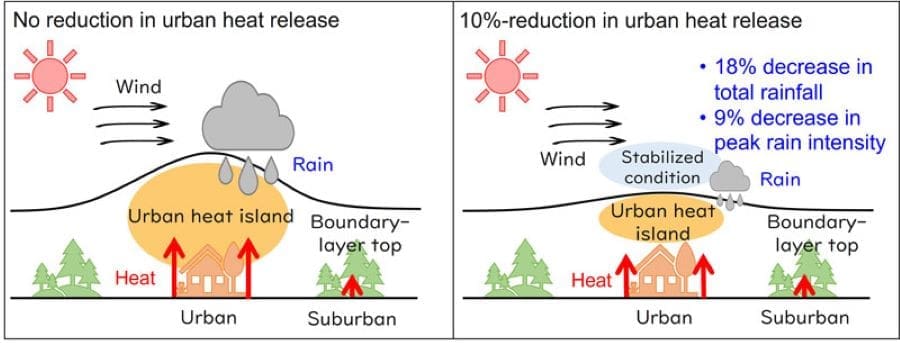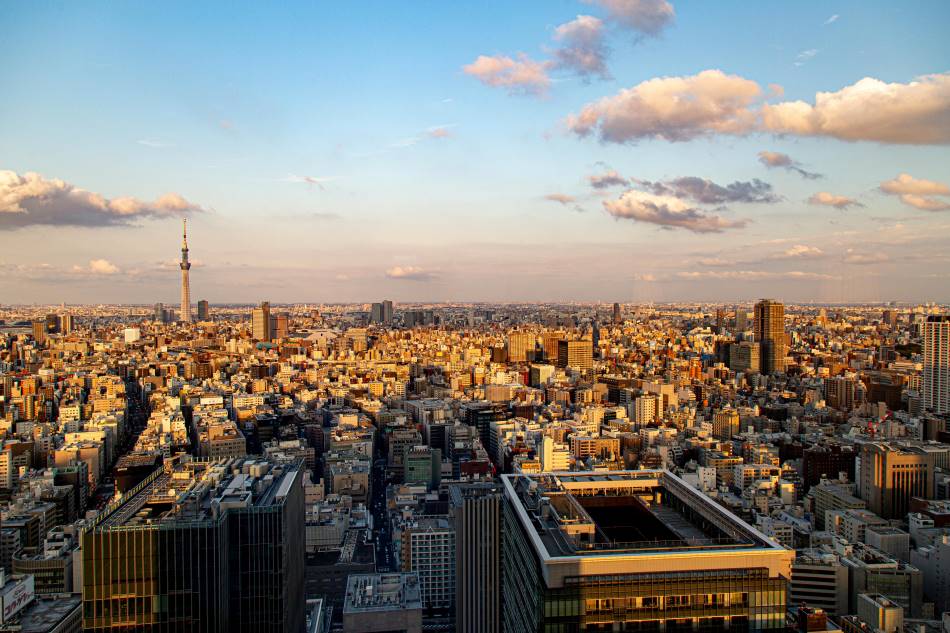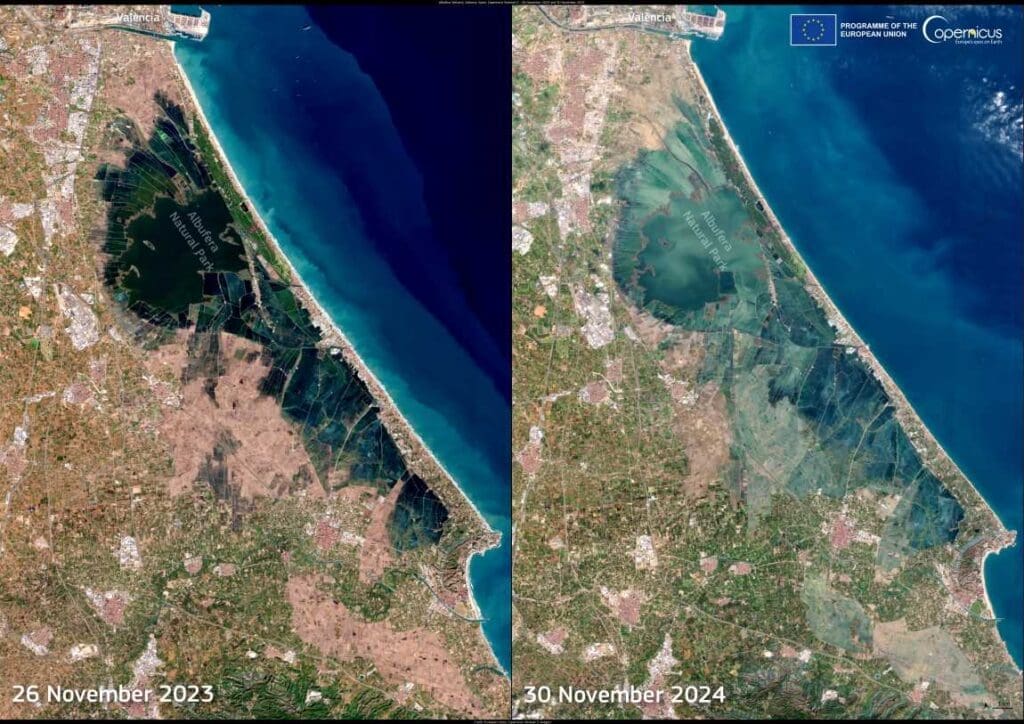Summary:
As summer temperatures rise in cities, so do the risks of sudden downpours and flash flooding triggered by intense afternoon thunderstorms. These events are often worsened by the urban heat island effect, where dense city landscapes absorb and emit more heat than surrounding areas. A new study from Kyoto University explores how reducing surface sensible heat flux (SHF), the heat radiated from urban surfaces like roads and rooftops, can help curb this problem. Using high-resolution simulations of an August 2023 rainfall event in Osaka, researchers modeled various levels of SHF reduction and examined their effects on local precipitation.
The study has been published in Theoretical and Applied Climatology.
The results showed that reducing SHF, even within a limited urban area, could significantly decrease accumulated and peak rainfall, as well as the frequency of extreme precipitation. The most practical experiment, a 10% SHF reduction in a 20-kilometer urban zone, led to an 18% decrease in total rainfall and a 13% drop in peak precipitation. These findings suggest that managing heat emissions in urban planning could be an effective way to mitigate weather-related hazards. As urbanization intensifies and climate change drives more extreme weather, this research points to a potential method of reducing storm severity in cities.

Summer in the city
Stifling heat and sticky air often make summertime in the city uncomfortable. Due to the heat island effect, urban areas are significantly warmer than nearby rural areas, even at night. This, combined with more frequent extreme weather events caused by climate change, often render the city an unpleasant environment in the summer.
Urbanization and climate change modify the thermal environment of urban areas, with an expectation that urban disasters from extremely hot weather and heavy rainfall will only become more severe. Mitigating potential damage involves reducing the intensity of the heat island effect and adapting to climate change.
Motivated by this problem, a team of researchers at Kyoto University set out to investigate how the reduction in urban heat release could help mitigate and control the rapid development of thunderstorms and local rainfall.
The team conducted numerical simulations of a local rain storm using a mesoscale meteorological model. The team selected a rainfall event in Osaka City on 27 August 2023 that occurred under summertime afternoon conditions without the influence of a typhoon or weather front.
After reproducing this rainfall event in a series of control simulations with different initial conditions, the team conducted a set of numerical experiments in which they systematically reduced sensible heat fluxes at the surface in land and urban areas, such as urban heat release.
When comparing the results between the control and sensitivity simulations, the team examined the impact of reducing sensible heat fluxes over urban areas on the intensity and amount of rainfall in Osaka City. Their results demonstrate that the reduction of heat release in urban areas can lead to the mitigation and control of local-scale rainfall on summer afternoons.
“Our study indicates that the regulation of urban heat release as a weather modification method is a promising approach in controlling local-scale rainfall,” says first author Kenta Irie.
Due to the compounding effects of climate change and urban heating, the increase in weather-related issues is becoming part of daily life in urban and residential environments. It is necessary to prepare for these changes in extreme weather such as heavy rainfall and strong wind in cities, and this research has revealed one way of doing so.
“We are excited to learn that regulating urban heat release has the potential to help us deal with urban weather-related issues,” says corresponding author Tetsuya Takemi.
The researchers are now using a high-resolution numerical model, which represents actual urban environments, to investigate the impacts of heat release from individual buildings and streets in real cities. They plan to combine this numerical modeling and the mesoscale meteorological model to quantitatively assess how to control local-scale rainfall with the reduction in urban heat release.
“We hope to further advance our study on urban extreme weather and contribute to further mitigation of these problems,” says Takemi.
Journal Reference:
Irie, K., Takemi, T., ‘Effects of modifying surface sensible heat flux on summertime local precipitation in urban areas of Osaka, Japan’, Theoretical and Applied Climatology 156, 308 (2025). DOI: 10.1007/s00704-025-05509-9
Article Source:
Press Release/Material by Kyoto University
Featured image credit: frank minjarez | Pexels




